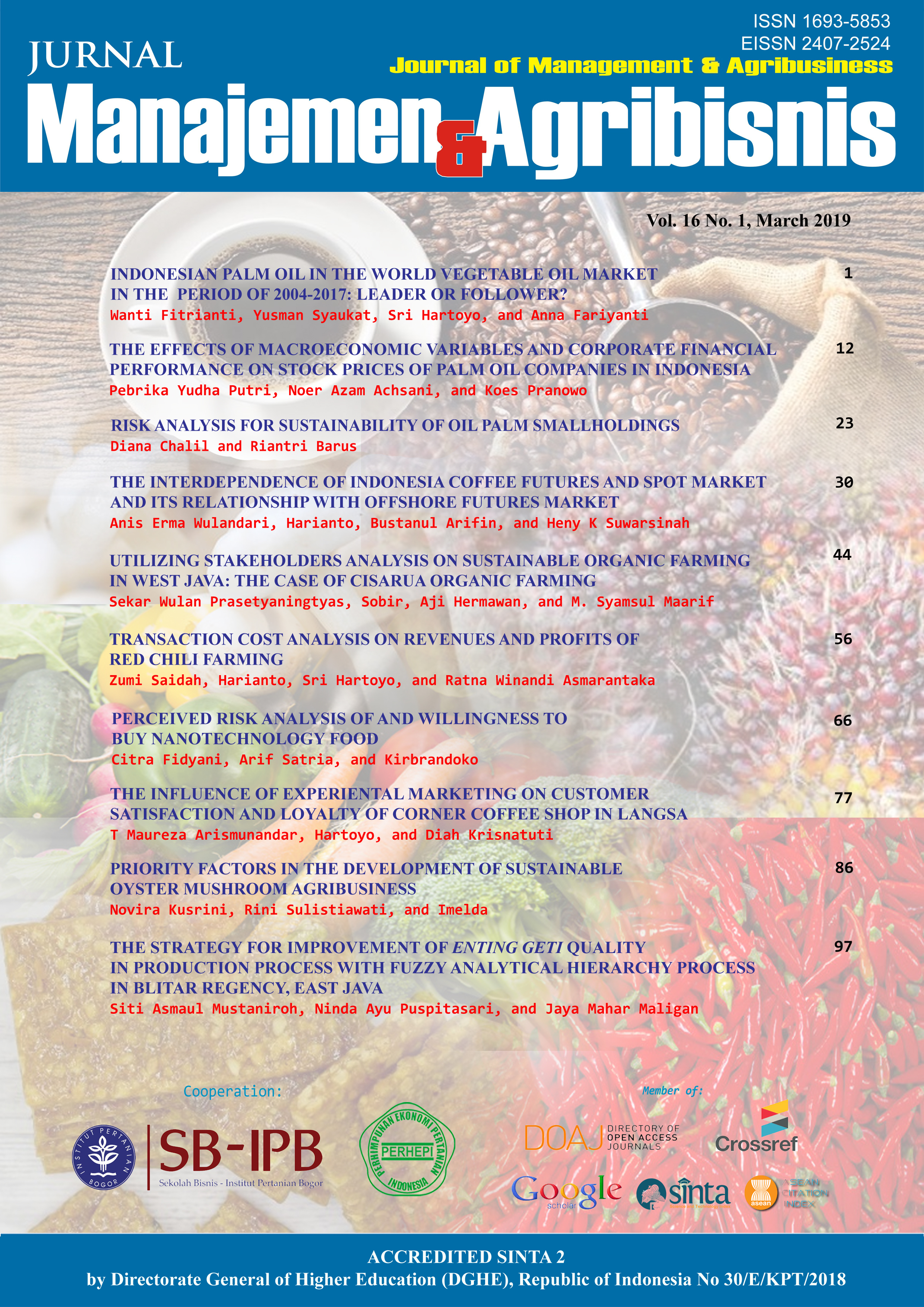The Influence of Experiential Marketing on Customer Satisfaction and Loyalty of Corner Coffee Shop in Langsa
Abstract
The level of coffee consumption is on a raging level, making the coffee shop business is also increasingly emerging in the form of both local coffee shops and international coffee shops. Coffee Corner is the first coffee shop in Langsa city that combines traditional and modern aspects in its presentation. To ensure business continuity, Kedai Coffee Corner has to create a strategy so that it can boost their customer satisfaction and loyalty by providing experience that can be formed through five dimensions of sense, feel, think, act and relate. This study aims to analyze the influence of experiential marketing on customer satisfaction and loyalty. Corner coffee shop customers of which criteria is above than 17 years old and willing to be respondents are taken and as many as 180 respondents are selected using accidental sampling technique, then the respondents fill out a questionnaire that contains a statement about the variables studied so that the data obtained will then be processed using Structural Equation Modeling (SEM). The result of the research shows that experiential marketing has a significant effect on customer satisfaction and loyalty either directly or indirectly. Experiential marketing is reflected by two dimensions that have the greatest contribution and those are sense and relate. Better quality and aroma of the coffee, as well as superiority in fragrant than other coffee shops, is the indicator that contributes the most to the sensory dimension. An excellent coffee image and quality of the presentation are the indicators that contribute the most to the relative dimension.
Authors
Authors who publish with this journal agree to the following terms:
- Authors retain copyright and grant the journal right of first publication with the work simultaneously licensed under a Creative Commons Attribution License that allows others to share the work with an acknowledgement of the work's authorship and initial publication in this journal.
- Authors are able to enter into separate, additional contractual arrangements for the non-exclusive distribution of the journal's published version of the work (e.g., post it to an institutional repository or publish it in a book), with an acknowledgement of its initial publication in this journal.
- Authors are permitted and encouraged to post their work online (e.g., in institutional repositories or on their website) prior to and during the submission process, as it can lead to productive exchanges, as well as earlier and greater citation of published work (See The Effect of Open Access).

